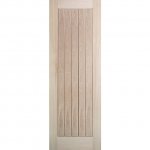WelshWood
Member
- Joined
- Mar 13, 2015
- Messages
- 194
Hey guys,
Quite a vague question, but just wondering how you guys work out your pricing for particular projects/commissions you come across.
Recently I get the feeling I've been undercharging for a few things; experience is obviously a major factor, but just seeing if anyone can give me any tips so I know how much to charge.
For example, I have a commision to make some MDF sliding doors which will span around 6m of a room, so 6 doors, in total, around 1800mm high, with a pattern routed into in much like this;
[attachimg=1]
To which I will then add the hardware to allow the doors to slide and stop on the floor to prevent the doors swaying.
I have a vague price i'm thinking of asking, but again, as mentioned I have trouble pricing, I would like to see if i'm around the ballpark figure that you guys can suggest.
Many Thanks,
~WW
Quite a vague question, but just wondering how you guys work out your pricing for particular projects/commissions you come across.
Recently I get the feeling I've been undercharging for a few things; experience is obviously a major factor, but just seeing if anyone can give me any tips so I know how much to charge.
For example, I have a commision to make some MDF sliding doors which will span around 6m of a room, so 6 doors, in total, around 1800mm high, with a pattern routed into in much like this;
[attachimg=1]
To which I will then add the hardware to allow the doors to slide and stop on the floor to prevent the doors swaying.
I have a vague price i'm thinking of asking, but again, as mentioned I have trouble pricing, I would like to see if i'm around the ballpark figure that you guys can suggest.
Many Thanks,
~WW

